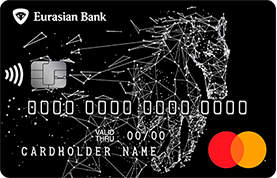The deception scheme began with a WhatsApp message from the “rector” of the educational institution where the woman worked. Allegedly, the fact of high treason was revealed at the university, and the financing of a terrorist group is performed using her personal data. The “rector” warned about the secrecy regime and that the “NSC investigator” would communicate with her.
In turn, the “investigator” demanded an urgent loan to cover up her credit history and prevent further attempts by the attackers to issue a loan in her name. He also assured that after all the procedures, the loan would be immediately closed, and the money “would remain safe.”
For three days, the woman was intimidated, referring to Articles 420 and 423 of the Criminal Code of the Republic of Kazakhstan concerning the non-disclosure of investigation data. Under pressure and the desire to avoid criminal liability, she issued a loan of 2 million tenge and handed it over to fraudsters.
A few days later, the scammers demanded to take out a new loan for another 6 million tenge, but already from a micro-finance organization (MFO). At that moment, the woman realized that she had most likely fallen into a scam.
Mistakes that cost money:
1. Trust in the head – the “rector/director/dean/chief physician”, etc.
The scammers acted on behalf of her supervisor using an unknown phone number. The woman decided that it was related to a state secret and did not double-check the information personally. If she had called the rector back directly or gone to the office, she could have avoided financial losses.
2. Fear of violating “secrecy”.
The scammers pressed the Criminal Code articles on non-disclosure of investigation data, exerting pressure and creating fear and haste, without a chance to double-check the information. If you are told that you have no right to discuss the situation with anyone, this is an alarming signal. Call the National Security Committee, the Police or the Prosecutor’s Office, introduce yourself and clarify whether an investigation is underway, whether such an employee really works for them. A simple check could have prevented fraud.
3. Communication only via WhatsApp
If you are asked to discuss a case only on WhatsApp or Telegram, this is a reason to be wary: neither law enforcement agencies nor banks themselves initiate interaction with clients through messengers to conduct official conversations, especially in matters related to personal data, financial transactions or investigative actions. Remember the key feature – scammers avoid official communication channels.
4. Transfer of funds to third parties
The main mistake was to transfer money taken in your name to strangers. It is important to remember that neither government agencies nor banks ask customers to transfer funds to other people’s accounts or cards. It is always a danger signal.
This case is an important reminder: if the information seems shocking, do not rush to react. Take a break, check the facts – it can save you from losing money and nerves. Take care of yourself and your finances!





